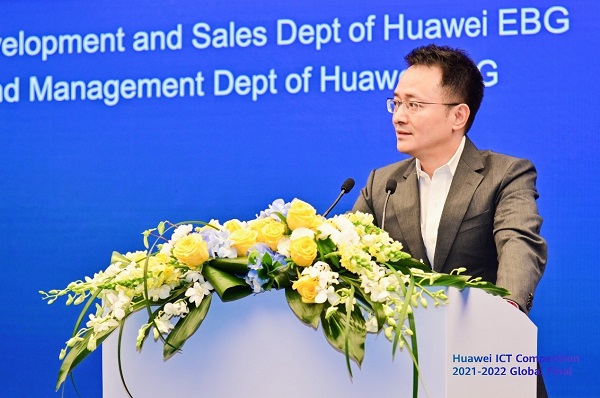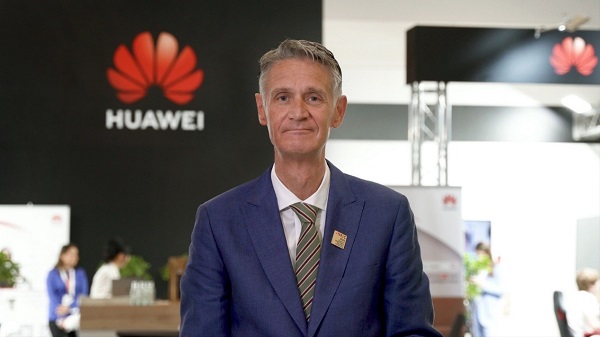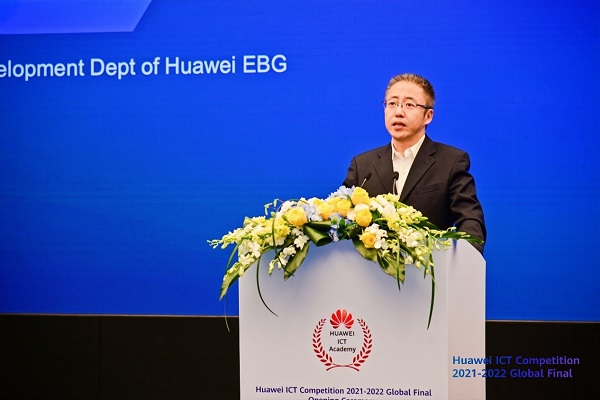
The Huawei ICT Competition 2021–2022 Global Finals has kicked off at Huawei’s Bantian Base in Shenzhen, China.
This year’s competition is focused on the themes of “Connection. Glory. Future” and features the slogan “I.C. The Future”. The competition attracted 150,000 students who represented over 2000 universities and colleges in 85 countries and regions.
A total of 130 teams from 43 countries and regions made it to the Global Finals from their respective country-level and regional competitions. Huawei hosts the ICT competition annually to provide students with a platform to compete and exchange ideas, enhance their ICT knowledge, practical skills and foster their capabilities to innovate by using new technologies and platforms.
The competition, which is in its 6th year has three racks – practice, innovation and industry, with the practice session further split into two sub-tracks (network and cloud).
In the ‘track’ segment students’ ICT knowledge, hands-on skills and teamwork are all put to the test. In comparison, the ‘innovation’ track has students build solutions with significant social and business values using technologies such as AI, IoT, big data, cloud and mobile Internet.
Finally, this year’s newly introduced ‘industry’ track focuses on smart road scenarios to encourage students to resolve real industry challenges and deliver business value through innovative solutions using their ICT and industry know-how. This year’s finals will be held online due to the ongoing pandemic.
The ‘practice’ track final consists of eight-hour lab exams and the ‘innovation’ and ‘industry’ track finals will consist of presentations from participating teams on their solutions and follow-up Q&As from the judges. In addition, this year’s participants will be the first to compete in a new series of Women in Tech Awards which have been designed to honour the outstanding talent displayed by the young women leaders in the competition.

In his opening remarks, the Huawei Enterprise’s president of partner development and vice-president of global partner development and sales, Steven Zhu, posited that the ICT industry development will require a large number of highly skilled ICT experts.
“Huawei is trying to build education, industry and public talent ecosystems while improving digital skills across society so that our industry can flourish. As an important part of Huawei’s efforts to build an education talent ecosystem, the competition is essential for promoting equitable and high-quality education.”

In his virtual remarks, the chief of UNESCO’s session for higher education, Peter Wells, praised the competition’s ability to give students around the world free access to educational courses and study materials, as part of their preparation for the competition.
He ended his address hoping UNESCO and Huawei will work together to improve the digital skills and technological literacy of global talent, promote balanced and equitable development across regions, and bridge digital divides around the world.

Finally, Huawei’s director of talent ecosystem development, Sun Gang, who attended onsite, closed out the ceremony by wishing the contestants good luck and looked forward to seeing how the students would showcase their ICT knowledge and skills. He encouraged them to use ICTs to transform their lives, create a better digital future and contribute to human development.
The closing ceremony of the final will also include the launch of Huawei’s newest Talent Cultivation Solution, the Huawei Academy Talent Training Platform.

